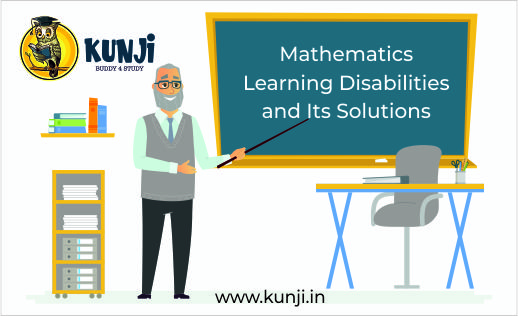Dyscalculia is a brain-based learning difference.
Math skills are necessary for success in the childhood educational and future adult work environment. Mathematics (math) is not only the science of numbers, but also is used in everyday life from calculating time and distance, to handling money and analyzing data to make decisions in financial planning and insurance purchasing, and is essential in the STEM (science, technology, engineering and math) fields. Infants have an innate capacity for “numerosity” or the number of things. In early childhood, counting is learned to bridge this innate capacity to more advanced math abilities like arithmetic facts and concepts. Over the past several decades important advances have been made in the understanding of the genetic, neural, and cognitive deficits that underlie reading disability (RD) and in the ability to identify and remediate this form of learning disability (LD).
Math learning difficulties are common, significant, and worthy of serious instructional attention in both regular and special education classes. Students may respond to repeated failure with withdrawal of effort, lowered self-esteem, and avoidance behaviours. In addition, significant math deficits can have serious consequences on the management of everyday life as well as on job prospects and promotion. Math learning problems range from mild to severe and manifest themselves in a variety of ways. Most common are difficulties with efficient recall of basic arithmetic facts and reliability in written computation. When these problems are accompanied by a strong conceptual grasp of mathematical and spatial relations, it is important not to bog the student down by focusing only on remediating computation.
Mathematics learning disability (MLD) or dyscalculia: It is a specific learning disorder in mathematics that has been defined in a similar way as other specific learning disorders, such as dyslexia. MLD involves large and persistent problems in mathematics that are not merely explained by inappropriate instruction, environmental deprivation, and behavioural or emotional disorders. It is assumed that MLD is due to underlying brain abnormalities, which are probably of a genetic origin. Difficulty with math happens at all levels. It can be as hard to learn addition as it is to learn algebra. Basic concepts like quantities can also be a challenge.
That’s why dyscalculia can make it hard to do everyday tasks. Cooking, grocery shopping, and getting places on time all involve these basic math skills, which are known as number sense. People with dyscalculia can have trouble with math in different ways. Signs may vary from person to person. And they can look different at different ages.
Common signs of dyscalculia include trouble:
- Grasping the meaning of quantities or concepts like biggest vs. smallest
- Understanding that the numeral 5 is the same as the word five, and that these both mean five items
- Remembering math facts in school, like times tables
- Counting money or making change
- Estimating time
- Judging speed or distance
- Understanding the logic behind math
- Holding numbers in their head while solving problems
Often parents ask: my child is very weak in Maths, What should I do?
Helping a Child with Dyscalculia:
Dyscalculia is a special need, and requires diagnosis, support and special methods of teaching. The most important thing to remember when teaching maths to a dyscalculia child is to keep it practical and sensory-based wherever you can.
If your child has dyscalculia he may feel frustrated or embarrassed when asked to do things -like reciting multiplication tables- that are difficult for him, especially during class or when other students are present. There are a number of ways you can support a child with dyscalculia – both in school and out.
- Tutoring will also allow your child to practice his math skills in a slower, less stressful setting.
- Supportive tools and tech can help your child navigate difficult problems.
- A calculator he knows how to use
- Pencils (for erasing!)
- Graph paper to help him keep columns and numbers straight.
- Acknowledge his struggles and praise hard work — even if the results aren’t perfect.
- Help him identify his specific strengths, and offer positive reinforcement.
- Praise, effort, and perseverance, rather than accomplishments, let your child realize that progressing in math is something that everyone can do.
- Use different learning strategies for arithmetic calculations like if a child has problem in memorizing multiplication tables, he can be taught other ways to solve a multiplication problem. For example, 6 x 4 can be solved by adding 6 + 6 + 6 + 6.
- Use plenty of tangible, concrete materials to help develop children’s understanding. Young children usually use cubes and beads for counting and visualising equations and it’s really important that these are not taken away from a child with dyscalculia.
- Practical maths games that involve puzzles and problem solving activities can be brilliantly motivational and really have their value when it comes to helping a child with dyscalculia to develop mathematical understanding.
If a child has dyscalculia that does not mean he will fail in maths or cannot move up the academic ladder. Like other learning disabilities, dyscalculia affects student success both in and out of the classroom. Study strategies that bring the abstract world of mathematics down to earth with visual and verbal cues and physical props can help dyscalculia students overcome obstacles to making sense of math.
The above article has been contributed by Dr. Prabhakar. He is a mathematician and teaches maths in Army School, Ambala. He has seen students struggling with maths and thus contributed this article.
Also See: Will Online Education Replace Classroom Learning?





